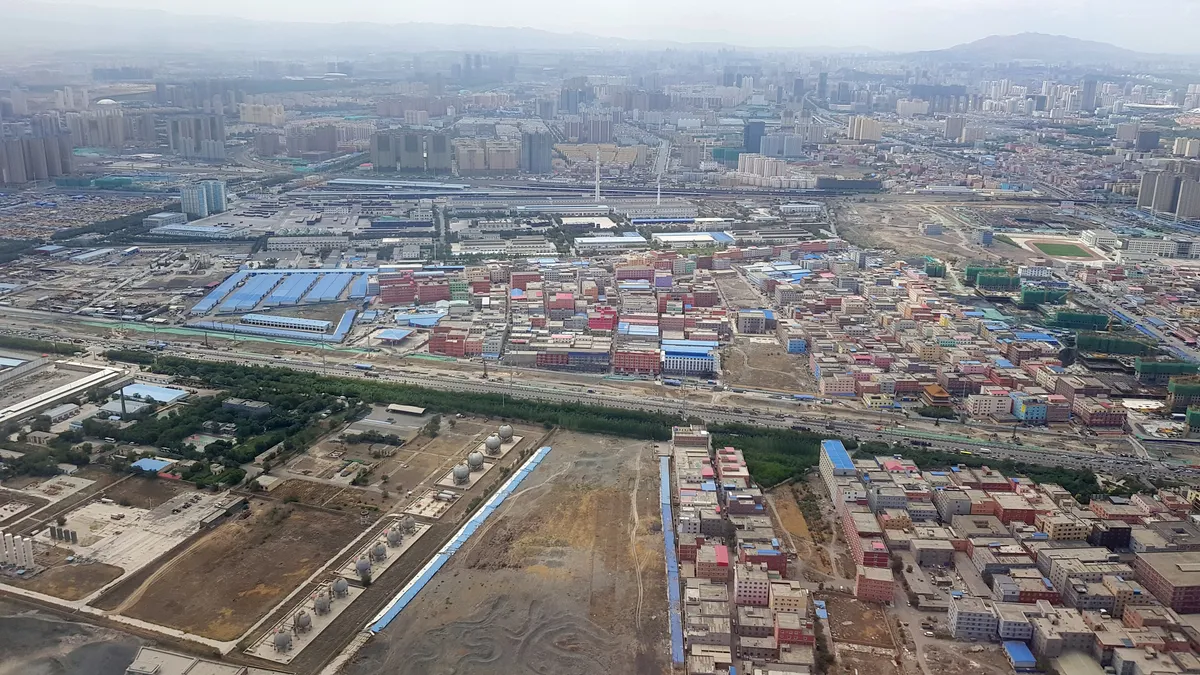Dive Brief:
- In a report released this week, Verisk Maplecroft found companies are increasingly exposed to forced labor risks as goods and raw materials produced in "reeducation" camps in China's Xinjiang province are entering global manufacturing supply chains in greater numbers.
- The Chinese government has claimed "forced labour engaged at these facilities is vocational training meant to help students integrate into Chinese society and improve their economic well-being," according to the report. However, the report notes this provides weak cover for brands whose upstream supply chains are associated with the widespread human rights violations of hundreds of thousands of Uyghurs, an ethnic minority targeted by China for internment in the camps, in addition to Muslims and activists. The report estimates at least 1 million men, women and children have been imprisoned in the camps since 2016.
- Apparel, electronics and food supply chains are at the greatest risk, the report finds, as the Chinese government's "vocational training" focuses on these sectors. As a result, Verisk Maplecroft cautions "standard due diligence practices are unlikely to be effective."
Dive Insight:
Cotton should be the paramount concern for firms sourcing from the region, according to the research. China’s National Bureau of Statistics shows 74.4% of the country's cotton is produced in Xinjiang, work that is predominantly undertaken by women and children and has direct links to forced labor regimes. In addition, other textiles to watch include cashmere wool.
It can be challenging to verify labor conditions in these regions because raw materials shipped into or produced in Xinjiang are often sent to other parts of China, or other countries such as Bangladesh and Vietnam, for processing. As a result, firms may miss ties to forced labor if they don't look deep enough into their supplier networks.
The problem is only growing as the trade war with China causes more firms to shift their supply chains throughout the continent. A recent Wall Street Journal report found the risks of exploitative manufacturing practices increase as companies move to countries that are struggling to eradicate forced and/or child labor, as factories in these nations try to keep up with demand.
China's large-scale Belt and Road initative, a series of infrastructural investments aimed at accelerating economic development and trade across Asia and parts of Africa, is in many ways anchored to Xinjiang province and the labor from the Uyghur community. Reports continue to surface about the camps' ongoing operations and increasing populations, despite the government's claims it has released "most of the prisoners" under pressure from the United Nations.
The Verisk Maplecroft report cautions firms sourcing in the region, "if components ... are being made by detainees, the [Chinese] government will do its best to make them untraceable to other supply chains."
This story was first published in our weekly newsletter, Supply Chain Dive: Procurement. Sign up here.














